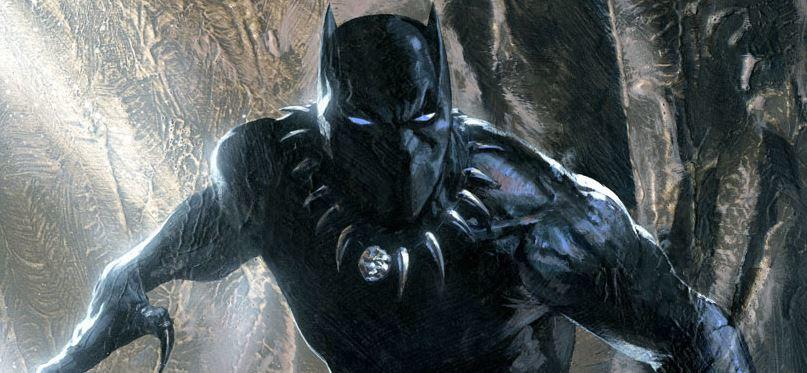
Section Branding
Header Content
Black Panther's New Marvel Adventure, Courtesy of Ta-Nehisi Coates
Primary Content

With heroic agility and confidence, Ta-Nehisi Coates just made a fantastic leap: from the New York Times Nonfiction Bestseller list to the pages of Marvel Comics.
Coates, who writes for The Atlantic and has been one of the leading voices in the media for the past two years on race in America, will write a 2016 series for Marvel's Black Panther. Brian Steelfreeze will provide the art for the series, which will focus on a terrorist-led revolution in Wakanda, the African kingdom ruled by Black Panther (T'Challa to his friends and unlucky villains.)
The news adds to what is shaping up to be a stellar year for Coates. His second book, "Between The World And Me," is currently at the top of the aforementioned bestseller list and has been nominated for a National Book Award. It's winning accolades as both an examination of the history of race in America and as a heartfelt message to his own son. Links to his Atlantic stories, Times' and Washington Post guest columns and other writings are must-retweets. It is a match made in geek culture heaven: Black Panther, the first black comic superhero, is preparing for his moment in the Marvel Cinematic Universe with an appearance in next year's Captain America: Civil Wars, followed by his own solo movie outing in 2017. Chadwick Boseman, who played Jackie Robinson in 42, will don the mask and outfit for Disney/Marvel.
Lest you think that this is some kind of literary stunt casting (up next: Doris Kearns Goodwin writing jokes for Black Widow), you should know that Coates is a certified pop culture geek raised on a diet of Marvel comics and Dungeons and Dragons. His Twitter feed, according to this New York Times article, provides plenty of evidence of his geekitude. Coates says that as a young comics reader he took notice of Marvel's early moves into diversity with black characters like the X-Men's Storm, Monica Rambeau as Captain Marvel and James "Rhodey" Rhodes, who was eventually fitted for Tony Stark's Iron Man suit. "I’m sure it meant something to see people who looked like me in comic books," Coates told the Times. "It was this beautiful place that I felt pop culture should look like.”
That has to provide one level of pleasure to Jonathan Gayles, professor of African-American Studies at Georgia State University and the director of the documentary "White Scripts and Black Supermen: Black Masculinities In Comic Books." During my interview with him earlier this year for a SciTech Now Georgia story on diversity in comic books, Gayles explained the power that Black Panther, Luke Cage and Storm had on young minds like his and how Marvel was to be commended for these efforts. (Black Panther made his first appearance in 1966, a year after the Selma marches.)
To say that Gayles is excited about Coates' involvement in continuing T'Challa's story is an understatement. "It's difficult for me not to camp out at the comic book store right now," he told me. "I'm very excited about it, considering Coates' analysis of race and history in the United States, I have full faith he will use this to provide a very nuanced representation of the Black Panther. I expect it to be completely political and I expect it to be timely and provocative."
Gayles said Black Panther is at the top of the Marvel power pyramid, "second only to Captain America in terms of the importance to the Marvel Universe." Up until now, his kingdom of Wakanda has never been conquered. He's an African superhero "who is independent in many ways from the racial politics of the United States, and so we see the Black Panther afforded a certain authority over his being that we don't see for Luke Cage and Black Lightning. He's been everything from a king to a schoolteacher in Harlem, because that's what he wanted to do."
Coates' brings his own literary superpowers to the Marvel mix, especially given the past year's worth of news. "There's such a heightened awareness of race right now, with Black Lives Matter and Obama. To have someone like Coates write a character - not just any character but Black Panther - he's afforded so much authority that you can do so much with the character."
There's also a lot that educators could do with the result of the Coates/Marvel collaboration. "There's more and more interaction between the academic realm and the comic book realm," Gayles said. "More classes are being taught using graphic novels, and this effort, with the kind of publicity it will generate, will certainly move that project forward as well."





